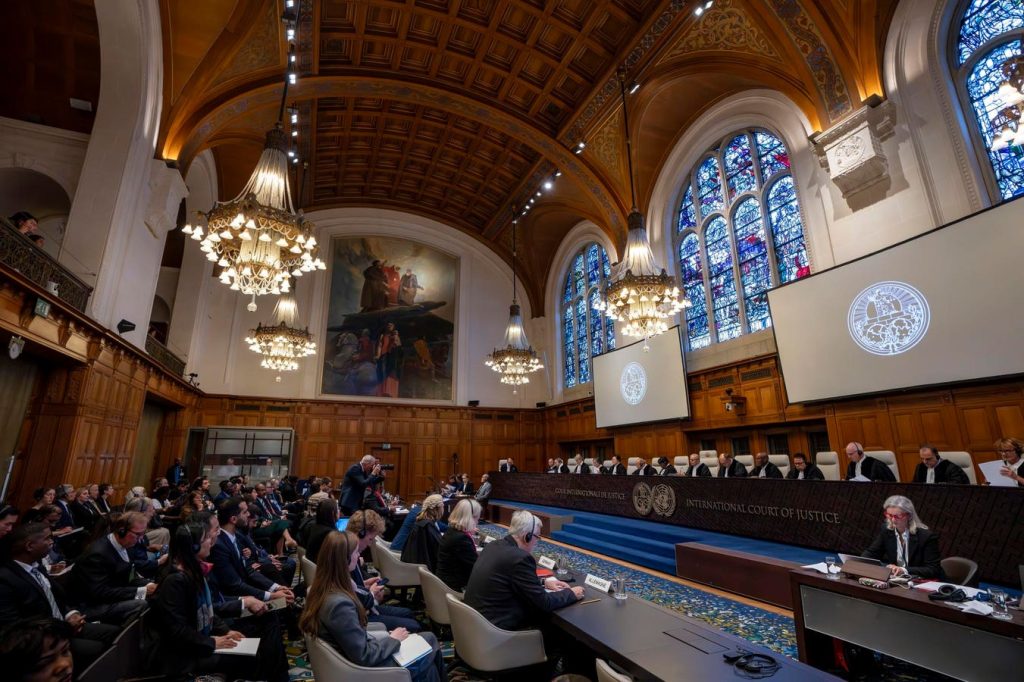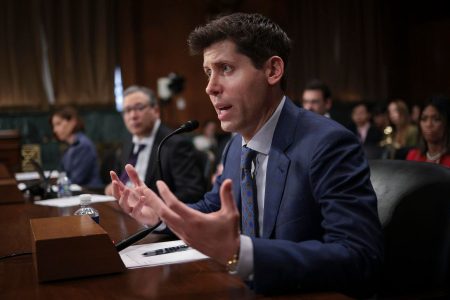The International Court of Justice (ICJ), also known as the World Court, concluded oral hearings in December 2023 concerning its highly anticipated advisory opinion on States’ obligations regarding climate change. This advisory opinion, requested by the United Nations General Assembly (UNGA) at the urging of Vanuatu, aims to clarify the legal responsibilities of nations in addressing climate change and the potential financial liabilities for countries contributing to this global crisis. The ICJ’s findings, while non-binding, are expected to significantly influence future climate litigation and guide the development of international climate law. The court’s deliberation revolves around two key questions: the obligations of States under international law to protect the climate system from anthropogenic greenhouse gas emissions and the legal consequences for States whose actions or omissions have caused significant harm to the climate system, particularly for vulnerable small island developing states and present and future generations.
The ICJ, established in 1945 under the UN Charter, serves as a neutral arbiter for resolving legal disputes between nations. Comprised of 15 judges elected by the UNGA and the UN Security Council, the court operates independently from other international legal bodies such as the International Criminal Court (ICC), despite both being located in The Hague, Netherlands. The current ICJ President, Judge Nawaf Salam of Lebanon, oversaw the December hearings, which involved presentations from over 100 countries and parties. Each participant presented prepared oral statements, complete with citations, in 30-minute increments. These statements, along with verbatim transcripts of the daily hearings, were made publicly available on the ICJ’s website, offering unprecedented transparency to the proceedings.
The legal arguments presented during the hearings exposed a fundamental divergence in perspectives between developed and developing nations. Developed countries, including the United States, Australia, and Germany, invoked the principle of lex specialis, arguing that the UN Framework Convention on Climate Change (UNFCCC) and the Paris Agreement, as specific treaties addressing climate change, supersede any other international law on the subject. This interpretation limits legal obligations to those explicitly negotiated within these agreements and effectively precludes claims for reparations or actions beyond the existing framework.
Conversely, developing countries contended that the UNFCCC and Paris Agreement represent a starting point, not the definitive word on climate obligations. They argued that the adverse impacts of climate change infringe upon fundamental human rights enshrined in international common law and the Universal Declaration of Human Rights. Therefore, nations that have historically contributed significantly to climate change through fossil fuel production and greenhouse gas emissions bear a responsibility to provide reparations to vulnerable nations disproportionately affected by the consequences. This perspective underscores the moral and ethical dimensions of climate change, emphasizing the need for financial assistance to address the impacts on vulnerable populations.
Following the oral presentations, four ICJ judges posed written questions to the participants, focusing on critical aspects of the legal debate. Judge Sarah Cleveland of the USA inquired about the specific obligations of States where fossil fuels are produced to protect the climate system. Judge Dire Tladi of South Africa sought clarification on the interpretation of Article 4 of the Paris Agreement and the influence of the agreement’s object and purpose on that interpretation. Judge Bogdan-Lucian Auresco of Romania requested elaboration on the legal content of the right to a clean, healthy, and sustainable environment and its relationship with other relevant human rights. Judge Hilary Charlesworth of Australia probed the significance of declarations made by some States upon joining the UNFCCC and Paris Agreement, asserting that these agreements do not derogate from general international law principles or claims related to compensation or liability for climate change impacts.
The questions posed by the judges highlight several key areas of contention. Judge Cleveland’s question addresses the contentious issue of responsibility for fossil fuel production, a major contributor to greenhouse gas emissions. Judge Tladi’s question focuses on the interpretation of the Paris Agreement, particularly regarding nationally determined contributions and whether they impose binding obligations on States. Judge Auresco’s question explores the emerging legal concept of the right to a healthy environment and its implications for climate change litigation. Finally, Judge Charlesworth’s question probes the potential interplay between the specific treaty obligations under the UNFCCC and Paris Agreement and broader principles of international law, particularly concerning liability and compensation.
The participants’ responses to these questions, due by December 20, 2023, will further inform the ICJ’s deliberation. The Court’s advisory opinion, expected in mid-to-late 2025, will likely offer a nuanced interpretation of international law as it pertains to climate change. It will address the complex interplay between existing treaty obligations, evolving principles of international law, and the ethical considerations surrounding climate change impacts, particularly on vulnerable nations. While the opinion is non-binding, it is anticipated to carry significant weight and provide guidance for future climate litigation and international negotiations.
The ICJ proceedings represent a critical moment in the ongoing effort to address the global challenge of climate change. The advisory opinion will provide a much-needed clarification of the legal landscape, potentially shaping future climate action and fostering greater accountability among nations. The outcome of this process will have profound implications for international climate policy, potentially leading to increased pressure on high-emitting countries to take more ambitious action and provide financial support to vulnerable nations grappling with the impacts of climate change. The world awaits the ICJ’s opinion with bated breath, recognizing its potential to reshape the international legal framework for addressing climate change and usher in a new era of climate justice.










